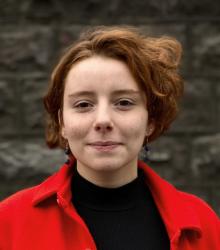Christmas lights and traditions bring much-needed warmth to the cold Icelandic winters. But before Christianity arrived in the country, Icelanders were pagan. We asked Hilmar Örn Hilmarsson, the head chieftain of the Ásatrú Society—a pagan religious group that honours the Old Norse pantheon—how the pagans celebrated the holidays.
“Do you celebrate Yule?” is a question I have been asked many times. The implication is of course: do you celebrate Christmas? But I have usually risen to the occasion by offering the hapless individuals who ask this an unwanted history lesson.
I would usually reel off the various winter solstice celebrations in the pagan world starting with the Roman Saturnalia, then the celebrations of Sol Invictus and Mithras, a Persian deity popular among Roman soldiers whose birthday was celebrated on the 25th of December. I would then move towards the north.
One of the oldest Skaldic poems is “Haraldskvæði” or “Hrafnsmál” by Þorbjörn hornklofi composed in the 9th century after the battle of Hafursfjord in Norway. Þorbjörn says in strophe 6:
“Úti vill jól drekka,
ef skal einn ráða,
fylkir enn framlyndi,
ok Freys leik heyja…”
I know three expositions, as the Skaldic poetry is notoriously difficult to decipher and they hinge on the different interpretations of the term “Freys leikur”.
A) The king will stay out on his ship and celebrate Yule with a drink but he would rather be engaged in battle.
B) The king is going to drink out Yule and have lots of sex.
C) The king is going to drink out Yule and watch or participate in a ritual performance of poetry associated with the fertility god Freyr.
The last interpretation connects with a few sources: a boar sacred to Freyr was led into a hall and people would make sacred oaths in his presence ( Heiðreks Saga / Helgakviða Hjörvarðssonar ) and we have the stirring Eddic poem “Skírnismál” about the love of said god Freyr of the radiant giant maiden Gerður which may have been performed around the winter solstice.
(It is worth noting that the poet Gerður Kristný has written a darker and more feminist version of Sírnismál in her poem “Blóðhófnir” which has been brilliantly translated into English as “Bloodhoof” by Rory McTurk ).
Jól was an important event, which we can glean from other sources: Houses had to be well-stocked with food and drink for the occasion and this was an important transition from one solar cycle to the next.
I feel Jól/Yule is a feast that reverberates with all traditions and is about sharing, communion, and celebrating birth and rebirth. As a liminal event, it is a good time to take stock of your life and make realistic oaths and promises about the future.
Buy subscriptions, t-shirts and more from our shop right here!
















